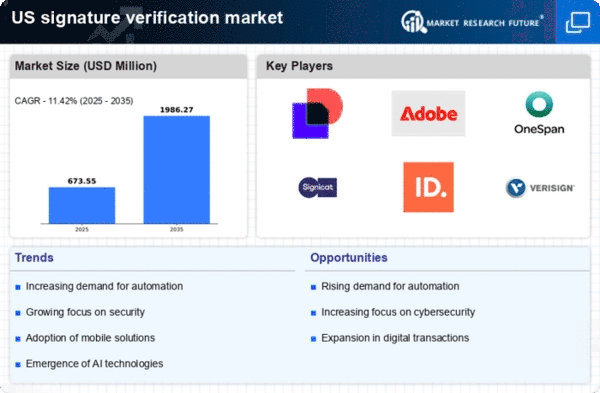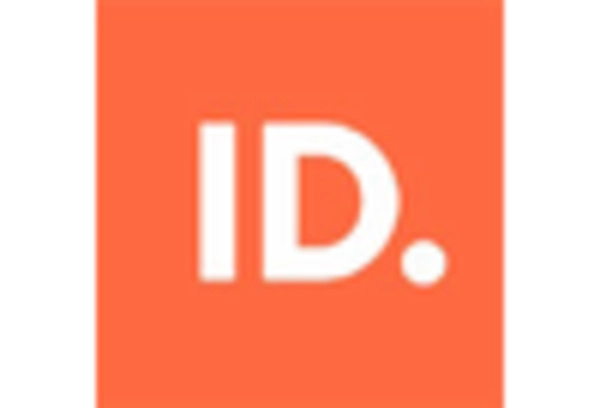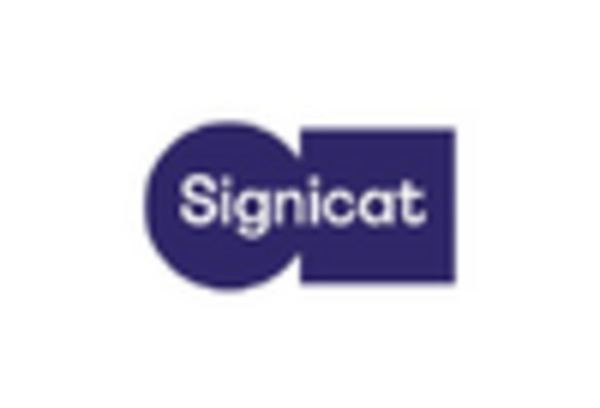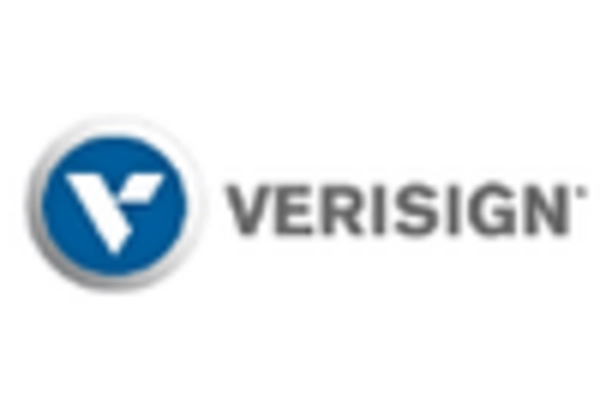Regulatory Compliance and Standards
Regulatory compliance plays a crucial role in shaping the signature verification market. As governments and regulatory bodies establish stringent guidelines for digital transactions, businesses are compelled to adopt signature verification solutions that meet these standards. In the US, regulations such as the Electronic Signatures in Global and National Commerce Act (ESIGN) and the Uniform Electronic Transactions Act (UETA) mandate the use of secure electronic signatures. This regulatory landscape drives the signature verification market, as companies seek to ensure compliance while minimizing legal risks. The market is expected to expand as organizations prioritize adherence to these regulations, thereby fostering a culture of security and trust in digital transactions.
Growing Demand for Secure Transactions
The increasing need for secure transactions is a primary driver in the signature verification market. As businesses and consumers become more aware of the risks associated with digital transactions, the demand for robust verification solutions rises. In 2025, the market is projected to reach approximately $1.5 billion, reflecting a compound annual growth rate (CAGR) of around 15% over the next five years. This growth is largely attributed to the heightened focus on cybersecurity and the necessity for businesses to protect sensitive information. The signature verification market is thus positioned to benefit from this trend, as organizations seek to implement advanced technologies that ensure the authenticity of signatures and prevent fraud.
Increased Adoption of Digital Platforms
The rapid adoption of digital platforms across various sectors is significantly influencing the signature verification market. As more businesses transition to online operations, the need for reliable signature verification solutions becomes paramount. In 2025, it is estimated that over 70% of transactions in sectors such as finance, healthcare, and real estate will occur digitally. This shift necessitates the integration of signature verification technologies to maintain trust and security in digital interactions. The signature verification market is likely to see substantial growth as organizations invest in solutions that facilitate seamless and secure digital transactions, thereby enhancing customer confidence and operational efficiency.
Rising Concerns Over Fraud and Identity Theft
The rising concerns over fraud and identity theft are pivotal drivers in the signature verification market. As incidents of cybercrime continue to escalate, organizations are increasingly prioritizing the implementation of secure verification methods to protect their assets and customer information. In 2025, it is projected that losses due to identity theft will exceed $16 billion in the US alone, underscoring the urgent need for effective signature verification solutions. The signature verification market is thus positioned to grow as businesses invest in technologies that mitigate these risks, ensuring the integrity of transactions and fostering consumer trust in digital platforms.
Technological Advancements in Verification Methods
Technological advancements are significantly impacting the signature verification market. Innovations in biometrics, machine learning, and artificial intelligence are enhancing the accuracy and efficiency of signature verification processes. For instance, biometric signature verification systems, which analyze unique characteristics of a person's signature, are gaining traction in various industries. The signature verification market is likely to experience growth as these technologies become more accessible and affordable for businesses. By 2025, it is anticipated that the integration of advanced verification methods will lead to a more streamlined user experience, ultimately driving market expansion and increasing the adoption of signature verification solutions.

















